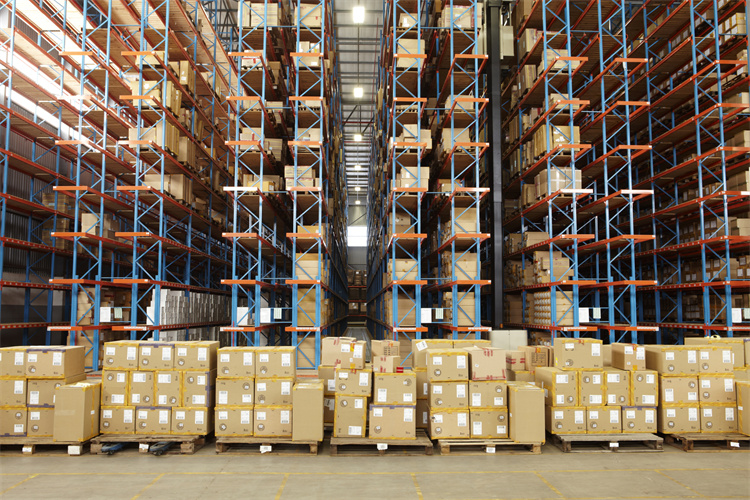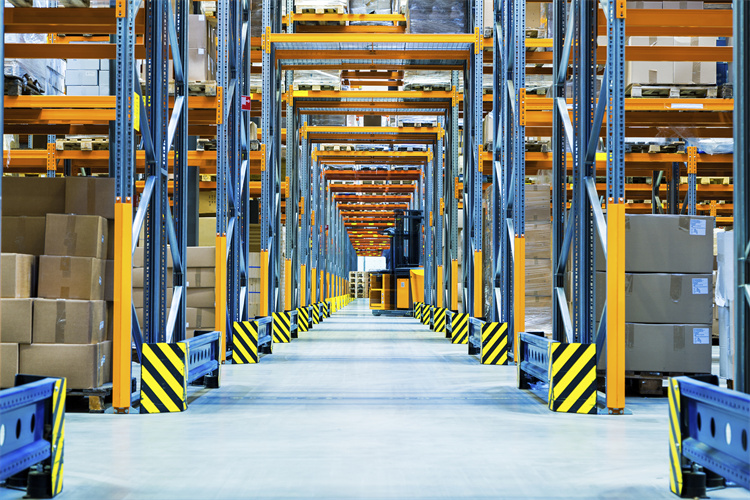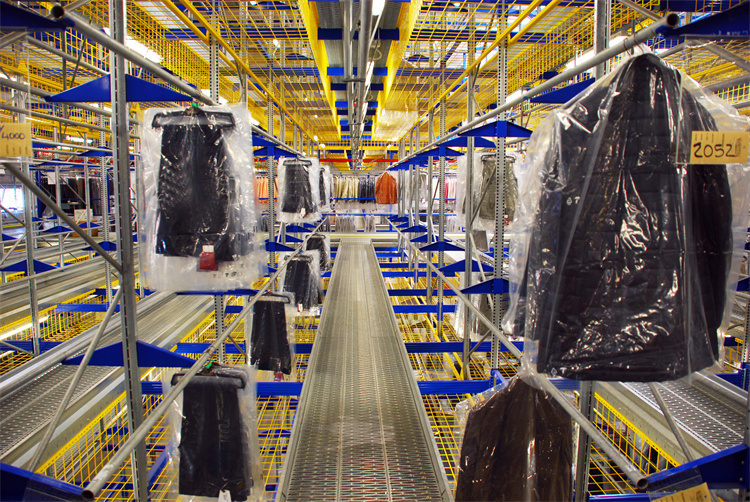What Makes Fulfillment Services Essential in Logistics?

Logistics and fulfillment services play a crucial role in today's supply chains. They ensure that products move efficiently from manufacturers to consumers. Fulfillment services, which include warehousing, picking, packing, and shipping, are essential for both online and physical stores. Notably, shipping fulfillment accounts for nearly 40% of the global e-commerce fulfillment industry. As businesses strive for improved customer service, 86% of shippers report that third-party logistics (3PL) providers have enhanced their service quality. This highlights the growing importance of understanding fulfillment services in modern logistics.
Understanding Fulfillment Services
Definition and Scope
What are Fulfillment Services?
Fulfillment services encompass a series of coordinated processes that ensure products move efficiently from businesses to customers. These services include receiving and storing inventory, processing orders, packaging products, and managing shipping. By outsourcing these tasks, companies can focus on selling their products rather than handling logistics. Fulfillment services play a crucial role in both online and physical retail environments, ensuring that customer orders are processed accurately and delivered promptly.
Key Components of Fulfillment Services
Fulfillment services consist of several key components that work together to streamline the supply chain:
Warehousing: Secure storage of products until they are needed for order fulfillment.
Picking: Selecting the correct items from inventory to fulfill customer orders.
Packing: Preparing products for shipment, ensuring they are protected during transit.
Shipping: Coordinating with carriers to deliver orders to customers efficiently.
These components form the backbone of fulfillment services, enabling businesses to meet customer expectations and maintain a competitive edge.
Types of Fulfillment Services
In-house Fulfillment
In-house fulfillment involves businesses managing their own warehousing, picking, packing, and shipping operations. Companies that choose this approach often have the resources and infrastructure to handle logistics internally. This method provides greater control over the fulfillment process, allowing businesses to tailor operations to their specific needs. However, it requires significant investment in facilities, technology, and personnel.
Third-party Fulfillment
Third-party fulfillment, or 3PL, involves outsourcing fulfillment operations to specialized service providers. These providers manage warehousing, picking, packing, and shipping on behalf of businesses. By leveraging the expertise and infrastructure of 3PL providers, companies can reduce overhead costs and improve efficiency. Third-party fulfillment is particularly beneficial for businesses experiencing rapid growth or seasonal fluctuations, as it offers scalability and flexibility without the need for substantial capital investment.
The Role of Fulfillment Services in Logistics

Integration with Supply Chain
Fulfillment services play a pivotal role in the integration of supply chains. They ensure seamless coordination with suppliers, which is essential for maintaining a steady flow of goods. By aligning closely with suppliers, fulfillment centers can anticipate demand and adjust inventory levels accordingly. This proactive approach minimizes disruptions and enhances the overall efficiency of the supply chain.
Coordination with Suppliers
Effective coordination with suppliers is crucial for fulfillment services. It involves constant communication and collaboration to ensure that inventory levels meet customer demand. Fulfillment centers work closely with suppliers to schedule deliveries, manage lead times, and address any potential issues that may arise. This collaboration helps in maintaining optimal stock levels and reduces the risk of stockouts or overstocking.
Impact on Inventory Management
Fulfillment services significantly impact inventory management by optimizing storage and retrieval processes. They employ advanced technologies such as automation and robotics to streamline operations. These technologies enhance accuracy and speed, allowing fulfillment centers to process orders efficiently. As a result, businesses can maintain accurate inventory records, reduce holding costs, and improve order fulfillment rates.
Enhancing Customer Experience
Fulfillment services are integral to enhancing the customer experience. They ensure that orders are processed quickly and accurately, leading to higher customer satisfaction. In a competitive market, the ability to deliver products promptly can set a business apart from its competitors. Fulfillment centers contribute to this by leveraging technology to improve delivery speed and accuracy.
Speed and Accuracy of Deliveries
The speed and accuracy of deliveries are critical components of customer satisfaction. Fulfillment services utilize automation and AI to optimize picking, packing, and shipping processes. This technological integration ensures that orders are fulfilled swiftly and accurately, reducing the likelihood of errors. Customers receive their products on time, which enhances their overall shopping experience and encourages repeat business.
Handling Returns and Exchanges
Handling returns and exchanges efficiently is another vital aspect of fulfillment services. A streamlined returns process can significantly impact customer loyalty. Fulfillment centers manage returns by inspecting returned items, updating inventory records, and processing refunds or exchanges promptly. This efficient handling of returns not only improves customer satisfaction but also helps businesses maintain a positive brand reputation.
Operational Details of Fulfillment Services
Order Processing
Receiving and Storing Inventory
Fulfillment centers receive inventory from suppliers and store it securely. They use advanced systems to track incoming shipments and ensure accurate inventory records. This process involves checking the quality and quantity of products upon arrival. Efficient inventory management prevents stockouts and overstocking, which can disrupt order fulfillment.
Picking and Packing Orders
Once an order is placed, fulfillment centers pick the required items from storage. They use technology to locate products quickly and accurately. After picking, they pack the items securely for shipping. Proper packing protects products during transit and ensures customer satisfaction. Automation plays a crucial role here, reducing human error and speeding up the process.
Expert Testimony:
FLEX Logistics, an expert in ecommerce fulfillment automation, states, "Automation is revolutionizing ecommerce fulfillment by integrating technology into every step, allowing businesses to achieve workflow efficiencies, reduce human error, and realize significant cost savings."
Shipping and Delivery
Choosing Shipping Carriers
Fulfillment centers select shipping carriers based on factors like cost, speed, and reliability. They negotiate rates with carriers to offer competitive shipping options to customers. Choosing the right carrier ensures timely delivery and enhances customer satisfaction. This decision impacts the overall efficiency of the fulfillment process.
Tracking and Managing Deliveries
After shipping, fulfillment centers track deliveries to ensure they reach customers on time. They provide tracking information to customers, allowing them to monitor their orders. Effective delivery management reduces delays and improves the customer experience. Technology plays a vital role in tracking shipments and managing any issues that arise during transit.
Benefits of Fulfillment Services

Cost Efficiency
Reducing Overhead Costs
Fulfillment services significantly reduce overhead costs for businesses. By outsourcing logistics tasks, companies eliminate the need for large investments in warehousing, technology, and personnel. This reduction in capital expenditure allows businesses to allocate resources more effectively. Fulfillment centers handle inventory storage, order processing, and shipping, which minimizes the financial burden on companies. As a result, businesses can focus on core activities like product development and marketing.
Economies of Scale
Fulfillment services offer economies of scale that benefit businesses of all sizes. By consolidating orders from multiple clients, fulfillment centers achieve cost savings in shipping and handling. This collective approach reduces per-unit costs, making it more affordable for businesses to deliver products to customers. Additionally, fulfillment centers negotiate better rates with carriers due to their high volume of shipments. These savings are passed on to businesses, enhancing their profitability and competitiveness.
Scalability and Flexibility
Adapting to Market Demands
Fulfillment services provide the scalability needed to adapt to changing market demands. Businesses experience fluctuations in order volumes due to factors like promotions, product launches, or market trends. Fulfillment centers adjust their operations to accommodate these changes, ensuring that businesses can meet customer expectations. This adaptability allows companies to respond quickly to market opportunities without the constraints of limited resources.
Seasonal Adjustments
Seasonal variations in demand pose challenges for businesses, especially during peak shopping periods. Fulfillment services offer the flexibility to manage these fluctuations efficiently. During high-demand seasons, fulfillment centers increase their workforce and optimize processes to handle increased order volumes. This capability ensures that businesses maintain service quality and customer satisfaction, even during busy periods. By leveraging fulfillment services, companies avoid the pitfalls of overstaffing or underutilization during off-peak times.
Challenges in Fulfillment Services
Managing High Order Volumes managing high order volumes
Peak Season Challenges
Fulfillment services face significant challenges during peak seasons. Businesses experience a surge in order volumes, which can strain resources and infrastructure. Fulfillment centers must prepare for these periods by increasing workforce capacity and optimizing processes. They often hire temporary staff and extend working hours to meet demand. Efficient management of high order volumes ensures timely deliveries and maintains customer satisfaction.
Technology and Automation Solutions Technology and automation
Technology and automation play a crucial role in managing high order volumes. Businesses leverage the latest technologies to streamline operations and improve efficiency. Automation reduces manual labor, allowing human resources to focus on higher-value tasks. Robotics and AI optimize inventory locations and enhance picking and packing operations. These advancements ensure accurate orders and timely deliveries, even during peak seasons.
Key Insight:
Implementing automation and robotics can reduce costs and improve efficiency. This allows human resources to focus on higher-value tasks, enhancing overall productivity.
Maintaining Quality Control
Ensuring Product Accuracy
Maintaining product accuracy is vital for fulfillment services. Errors in order fulfillment can lead to customer dissatisfaction and increased returns. Fulfillment centers employ advanced technologies to ensure accuracy. AI-powered algorithms optimize inventory management and streamline operations. These technologies enhance precision in picking and packing, reducing the likelihood of errors.
Handling Customer Complaints
Handling customer complaints effectively is essential for maintaining a positive brand reputation. Fulfillment centers must address issues promptly and efficiently. They implement robust systems to track and resolve complaints. This involves inspecting returned items, updating inventory records, and processing refunds or exchanges. Efficient complaint handling improves customer satisfaction and fosters loyalty.
Industry Perspective:
Automation, robotics, and AI play a key role in streamlining operations and enhancing customer experience. These technologies improve efficiency and accuracy, ensuring high-quality service delivery.
JUSDA's Approach to Fulfillment Services
Innovative Solutions
JusLink Intelligent Supply Chain
JUSDA revolutionizes fulfillment services with its JusLink Intelligent Supply Chain. This platform integrates IoT, cloud computing, and big data to enhance supply chain visibility. It allows real-time collaboration and information sharing, which optimizes logistics operations. Businesses benefit from improved decision-making and increased efficiency. JusLink ensures that companies can respond swiftly to market changes and customer demands.
Industry-Specific Solutions
JUSDA tailors its fulfillment services to meet the unique needs of various industries. It offers specialized solutions for sectors like electronic manufacturing, automotive, and medical health. Each solution addresses specific challenges and requirements, ensuring optimal performance. By understanding industry nuances, JUSDA provides targeted support that enhances operational efficiency. This approach helps businesses maintain a competitive edge in their respective markets.
Global Reach and Efficiency
Extensive Network and Infrastructure
JUSDA boasts a robust global network with over 155 service points worldwide. Its extensive infrastructure supports efficient logistics operations across multiple transportation modes. This network ensures timely and reliable delivery of goods to customers. JUSDA's strategic locations facilitate seamless integration with supply chains, reducing transit times and costs. Businesses benefit from enhanced service quality and customer satisfaction.
Commitment to Innovation
Innovation drives JUSDA's approach to fulfillment services. The company invests in cutting-edge technologies to improve logistics processes. Automation, robotics, and AI play a crucial role in streamlining operations. These advancements enhance accuracy and speed, ensuring high-quality service delivery. JUSDA's commitment to innovation positions it as a leader in the logistics industry. Businesses gain a competitive advantage by leveraging JUSDA's innovative solutions.

JUSDA Solutions
To provide you with professional solutions and quotations.
Fulfillment services play a crucial role in logistics by ensuring products reach customers accurately and efficiently. They streamline the process, enhancing customer satisfaction and loyalty. As technology advances, fulfillment services will continue to evolve, offering even greater efficiency and accuracy. Businesses should evaluate their fulfillment strategies to stay competitive. By leveraging specialized fulfillment providers, companies can focus on core activities while ensuring timely delivery. This strategic approach not only reduces costs but also improves service quality, positioning businesses for success in a rapidly changing market.
See Also
The Importance of Security in Supply Chain Logistics
Boosting Warehouse Efficiency with Logistics Robots
Revolutionizing Efficiency with JUSDA's Logistics Optimization
